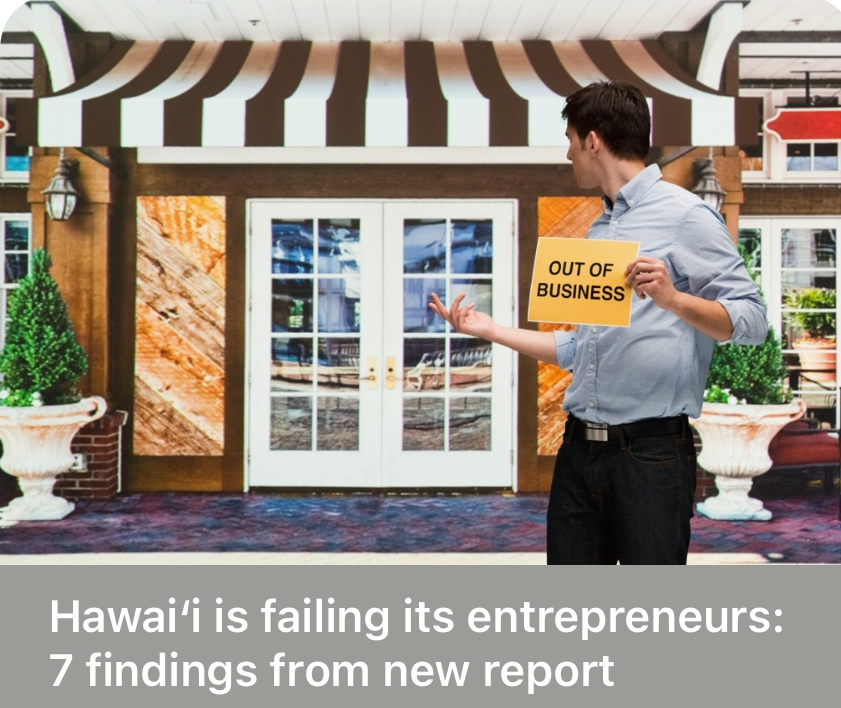“Government’s view of the economy could be summed up in a few short phrases:
If it moves, tax it.
If it keeps moving, regulate it.
And if it stops moving, subsidize it.”
Ronald Reagan, August 12, 1986

Posted:
HONOLULU (KHON2) — Starting a business in Hawai‘i can feel like swimming against the current. There’s all this beautiful surroundings, rich culture and community pride that masks deeper struggles.
While small business ownership is a dream for many in the islands, the reality is very complex. From sky-high costs to shaky support systems, many local entrepreneurs are asking: Is Hawai‘i failing its entrepreneurs?
Let’s look at seven key things to understand from the study, especially if you’re thinking about starting or supporting a business in Hawai‘i.
1. Hawai‘i isn’t the worst, but it’s far from the best
According to data from the U.S. Bureau of Labor Statistics and analyzed by the study, Hawai‘i doesn’t top the list for the highest business failure rates. But it also doesn’t make it into the best-performing states.
The top states for business survival — like Washington (13.6% first-year failure rate) and California (14.0%) — tend to offer stronger ecosystems for startups. That means access to capital, networks and infrastructure.
Hawai‘i’s isolation and high cost of living make it more difficult for entrepreneurs to tap into those same advantages offered in states actively supporting it entrepreneurs.
2. The cost of doing business in Hawai‘i is crushing
Let’s be real: Hawai‘i is expensive. Commercial rent, shipping fees, electricity, and basic supplies all cost more here than on the continent. Even hiring workers is tough because the labor pool is small.
These costs squeeze profit margins. During periods of inflation, like the 8.5% spike from 2021 to 2022, customers buy less. That puts even more pressure on local businesses, especially new ones.
“Inflation doesn’t just affect your grocery bill,” said Matt Schulz, chief analyst of the study. “It also changes how people spend money in their communities — or don’t.”
Get Hawaii’s latest morning news delivered to your inbox, sign up for News 2 You







